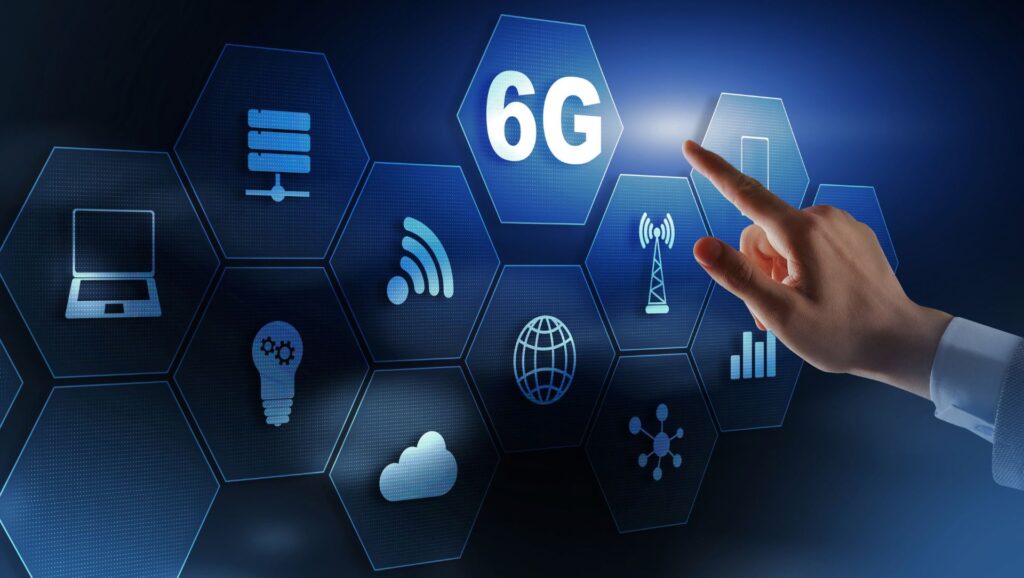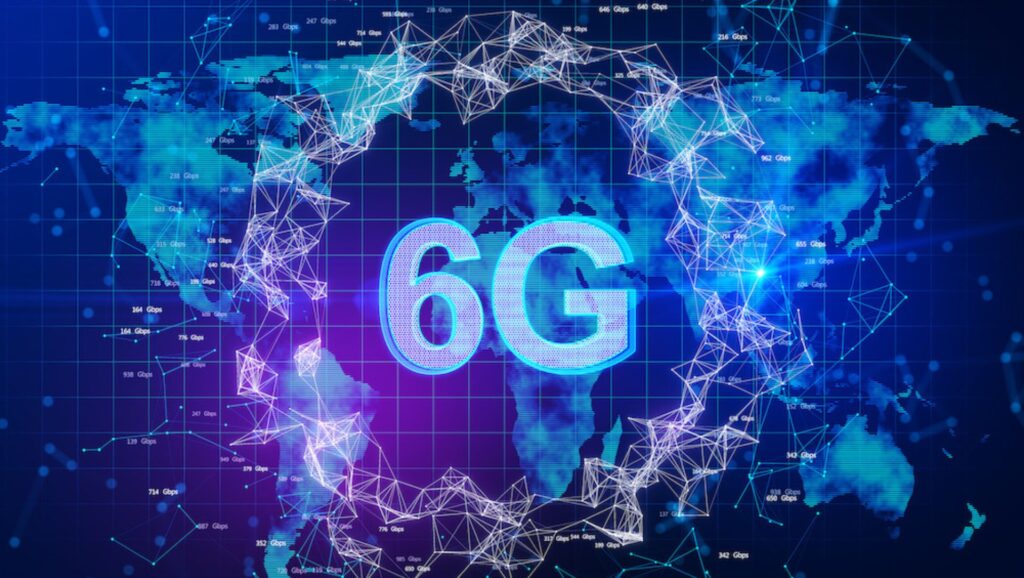As we speak, 5G is still rolling out around the world, but the next generation of wireless technology is already looming on the horizon: 6G.
This futuristic technology promises to revolutionize the way we work and play by enabling faster data speeds, more reliable connections, and a host of new applications.
So what exactly is 6G, and what kind of impact can we expect it to have on businesses?

What is 6G?
At its core, 6G is a set of wireless technologies that will enable faster data transmission and processing than anything we’ve seen before.
According to a report by MarketsandMarkets,
“The global 6G market is expected to grow from $0.01 billion in 2023 to $6 .25 billion by 2030, representing a compound annual growth rate of 156.9%.”
While 5G is capable of delivering speeds of up to 20 gigabits per second (Gbps), 6G promises to be 100 times faster, with speeds of up to 2 terabits per second (Tbps).
This will make it possible to transmit massive amounts of data in real-time, opening up new possibilities for applications such as virtual and augmented reality, smart cities, and autonomous vehicles.
Shiva Bojd, an expert in wireless communication and networking says,
“6G will be a true game-changer, enabling us to create new products and services that were previously impossible.”

6G – More than Speed?
But 6G is about more than just speed. It will also be designed to be more reliable and secure than current wireless technologies.
For example, 6G networks will be able to detect and mitigate interference from other devices in the environment, making them less susceptible to disruptions.
Additionally, 6G will incorporate new security features such as quantum encryption, which will make it virtually impossible for hackers to intercept and decode wireless transmissions.
The Business Impact of 6G
So what kind of impact can businesses expect from 6G? Here are a few ways that this technology could transform the corporate landscape:
Faster Data Transfer and Processing
One of the most obvious benefits of 6G will be faster data transfer and processing. This will make it possible for businesses to transmit and analyze data in real-time, which could be a game-changer for industries such as healthcare, manufacturing, and logistics.
For example, doctors could use real-time data from wearable devices to monitor patients remotely, while manufacturers could use data from sensors to optimize their production processes.
Improved Connectivity
Another key benefit of 6G will be improved connectivity. With 6G networks, businesses will be able to connect more devices and sensors than ever before, creating a truly interconnected world.
This will be particularly important for industries such as transportation and logistics, where real-time data is critical for operations.

New Applications and Services
Perhaps the most exciting aspect of 6G is the potential for new applications and services. With faster data speeds and improved connectivity, businesses will be able to create new products and services that were previously impossible.
For example, virtual and augmented reality could become mainstream, allowing businesses to create immersive experiences for their customers.
Moreover, 6G could enable the development of autonomous vehicles, drones, and robots, which could revolutionize industries such as transportation, construction, and manufacturing.
According to Alexander Wyglinski, a professor of electrical and computer engineering at Worcester Polytechnic Institute,
“6G will enable a whole new world of applications and services that we can’t even imagine today.”
Increased Efficiency and Productivity
Finally, 6G could help businesses become more efficient and productive. By enabling real-time data analysis and decision-making, businesses will be able to optimize their processes and reduce waste.
Furthermore, the improved connectivity and reliability of 6G networks could reduce downtime and disruptions, allowing businesses to operate more smoothly.

Expert Opinion on 6G
Jianwei Huang, a professor at the Chinese University of Hong Kong reported that,
“6G will likely have a dramatic impact on the way people interact with technology, potentially allowing for real-time holographic communication and providing immersive experiences that we can’t even imagine today.”
According toMischa Dohler, a professor at King’s College London,
“6G will provide the connectivity and capacity needed to support emerging technologies like augmented reality, virtual reality, and the Internet of Things, enabling us to create truly intelligent cities and environments.”
Moreover, Akihiro Nakao, a professor at the University of Tokyo also talked about 6G technology stating that,
“6G will be a platform for innovation and entrepreneurship, opening up new opportunities for startups and established businesses alike to create the next generation of products and services.”
These experts, along with many others, believe that 6G will have a profound impact on the way we live and work, unlocking new possibilities for innovation and growth.
As research into 6G continues, we can expect to see even more excitement and anticipation building around this technology.
The Future of 6G
Despite the promise of 6G, it is still in the very early stages of development. The technology is not expected to be commercially available until around 2030, and there are still many challenges that need to be overcome before it can become a reality.
For example, 6G will require a significant amount of new infrastructure, including more base stations and fiber optic cables.
However, the potential benefits of 6G are so significant that many companies and governments are already investing heavily in its development.

For example, the European Union has launched a research initiative called Hexa-X, which aims to develop a roadmap for 6G and ensure that Europe is at the forefront of its development.
Similarly, major tech companies such as Samsung and Huawei are already conducting research into 6G technology.
Conclusion
Hence, 6G represents a major leap forward in wireless technology that promises to transform the way we work and live. Its potential benefits include faster data transfer and processing, improved connectivity, new applications and services, and increased efficiency and productivity.
While it is still many years away from commercialization, the development of 6G is already underway, and it is likely to be a major focus of research and investment in the coming years.
As Shiva Bojd notes,
“The future is bright for 6G, and the possibilities are endless.”



